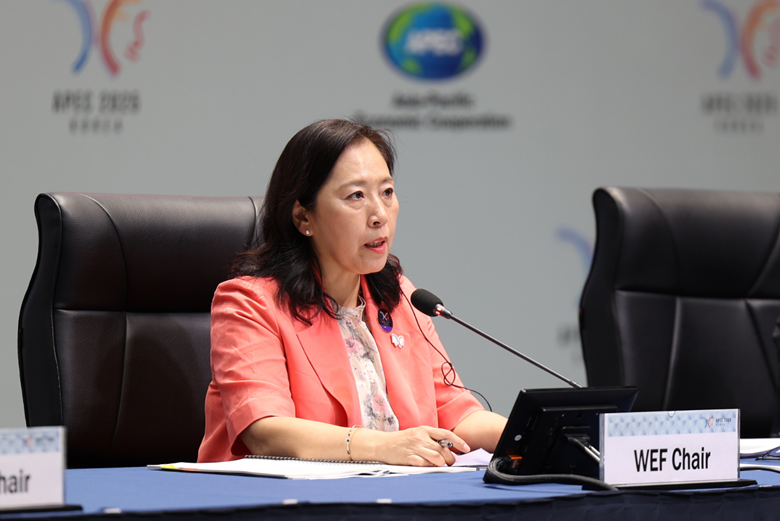
As Asia-Pacific economies confront demographic aging, care shortages, and rapidly evolving digital landscapes, ministers and high-level representatives reaffirmed that women's economic participation is foundational to resilience, innovation, and shared prosperity.
Opening the 2025 High-Level Policy Dialogue on Women and the Economy in Incheon, Shin Youngsook, Acting Minister of Gender Equality and Family of the Republic of Korea, called for concrete, cooperative action to advance women's economic participation under Korea's APEC host year priorities: Connect, Innovate, Prosper.
"We are gathered here today under the theme of 'Promoting Women's Economic Participation for Sustainable Growth.' This topic is not only one of APEC's priorities but also a powerful solution for achieving resilient growth and a sustainable future," Acting Minister Shin said.
Citing OECD estimates that closing the gender gap in labor force participation could boost GDP per capita by up to 9 percent by 2060 across OECD economies, and World Bank findings that achieving gender equality in employment could increase global GDP by 20 percent, Acting Minister Shin underscored the economic stakes of the agenda.
Within APEC, she noted, "The launch of the Women and the Economy Forum in 2011 was a turning point in elevating women and the economy to a central agenda," adding that the Policy Partnership on Women and the Economy has since "served as a driving force behind laying the cooperative foundation for APEC member economies."
She framed the path forward around three interconnected priorities for urgent, coordinated policy action.
On connecting, she urged member economies to build a safety net that can protect women from violence and discrimination to ensure women can fully engage in economic activities. This, she stressed, is "a task that no single economy alone can handle."
Turning to innovation, Acting Minister Shin called for closing the digital gap by creating a digital environment for advancing women's skills training and gender equality in the era of digital transformation and artificial intelligence. She emphasized the need to "open the door for learning and job opportunities so that women can fully grow as leaders."
Finally, on prosperity, she underscored the importance of ensuring that care is valued and care work becomes the benchmark for fully enjoying the dignity of labor in the midst of demographic shifts. She warned that "care should not come at the expense of the caregiver."
Ministers and high-level representatives exchanged strategies to transition women from the informal to the formal economy, embed gender perspectives into structural reforms, and strengthen women's participation in emerging sectors such as the green and digital economies.
The dialogue also highlighted the importance of developing the care economy, including policies and infrastructure that enable both women and men to balance work and family responsibilities.
"In today's meeting, we need to effectively respond to global challenges and deepen APEC's solidarity and bond to achieve APEC's collective vision for an inclusive and resilient community," Acting Minister Shin concluded. "This is the path that we wish to take together and an answer to what kind of society we aspire to build."






